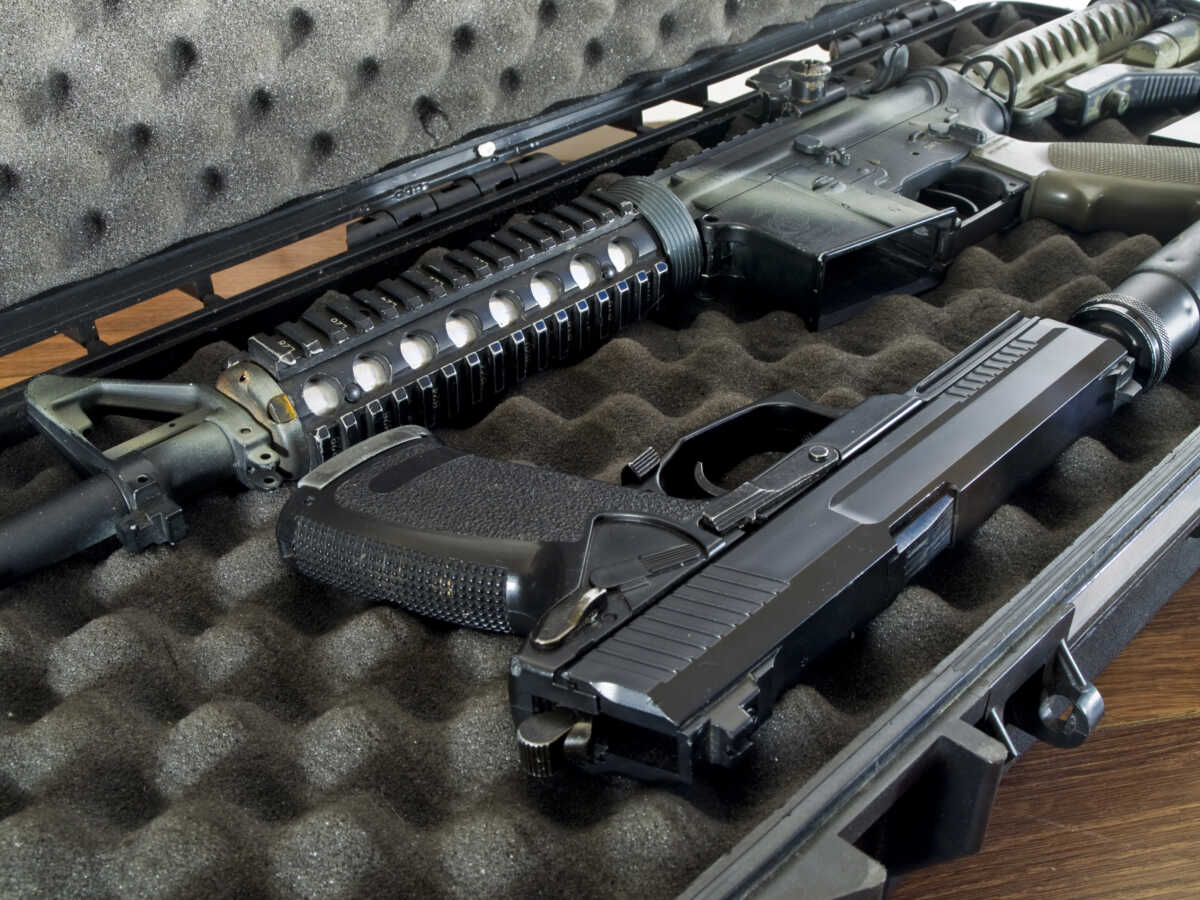

Articles
How To Store Guns To Prevent Rust
Modified: January 5, 2024
Discover effective strategies and tips in our comprehensive articles on how to properly store guns to prevent rust. Safeguard your firearms with our expert advice.
(Many of the links in this article redirect to a specific reviewed product. Your purchase of these products through affiliate links helps to generate commission for Storables.com, at no extra cost. Learn more)
Introduction
When it comes to owning firearms, proper storage is of utmost importance. One of the most common enemies of guns is rust. Rust not only affects the appearance of firearms but also their functionality and longevity. Preventing rust from forming on your guns is crucial to maintain their performance and value.
Rust is a chemical process that occurs when metal is exposed to moisture and oxygen over time. The iron in the metal reacts with the oxygen to form iron oxide, which we commonly know as rust. This process can cause significant damage to the internal and external components of firearms if left unchecked.
In this article, we will explore various methods and techniques to store guns in a way that prevents rust. From proper cleaning and maintenance to selecting the right storage location and utilizing rust preventive products, we will cover all the essential tips and tricks to keep your firearms rust-free.
Key Takeaways:
- Proper storage, cleaning, and maintenance are crucial for preventing rust on firearms. Understanding contributing factors and using rust preventive products are key to preserving the condition and value of guns.
- Choosing the right storage location, utilizing gun cases and safes, and regular maintenance are essential for ensuring firearms remain rust-free, protected, and in optimal condition.
Why Preventing Rust is Important
Preventing rust on your guns is vital for several reasons. First and foremost, rust compromises the integrity and functionality of firearms. It can cause parts to seize up or corrode, leading to malfunctions or even complete failure. This can be extremely dangerous, especially when handling firearms for self-defense or other critical situations.
Additionally, rust can significantly reduce the value of your firearms. If you ever decide to sell or trade your guns, potential buyers will be deterred by the presence of rust. Even in private collections, rust can diminish the aesthetic appeal and overall desirability of the firearms.
Rust can also spread, causing additional damage to adjacent parts. It can lead to pitting, where small holes or depressions form on the metal surface. Pitting not only affects the appearance of the gun but also compromises the structural integrity. Once pitting starts, it becomes difficult to repair the damage fully.
Furthermore, preventing rust is crucial for maintaining the value of historical or collectible firearms. These guns often hold significant historical and monetary value. Preserving their condition by preventing rust ensures that they remain as valuable and authentic as possible.
Lastly, rust can be a stubborn and challenging problem to deal with once it takes hold. It often requires extensive cleaning, polishing, and, in severe cases, even professional restoration. By preventing rust in the first place, you save yourself time, effort, and potentially expensive repair costs down the line.
Overall, preventing rust on your firearms is essential for ensuring their safety, functionality, value, and longevity. By implementing proper storage and maintenance practices, you can preserve the condition of your guns and enjoy them for years to come.
Factors that Contribute to Rusting of Guns
Understanding the factors that contribute to the rusting of guns is essential for implementing effective preventive measures. By addressing these factors, you can significantly reduce the likelihood of rust forming on your firearms. Here are some common culprits:
- Moisture: Moisture is the primary enemy of guns when it comes to rust formation. Whether it’s in the form of humidity, rain, or accidental exposure to water, moisture can seep into the metal surfaces of firearms and accelerate the rusting process. It is crucial to protect guns from any sources of moisture.
- Oxygen: Rust formation is a chemical reaction that requires the presence of oxygen. Exposure to air increases the chances of oxidation and rusting. Ensuring that guns are stored in airtight or well-sealed containers can significantly reduce oxygen exposure.
- Poor Cleaning: Inadequate cleaning of firearms can leave behind residues and contaminants that can accelerate rust formation. It is important to thoroughly clean your guns after each use, removing any dirt, oils, or other substances that can promote oxidation.
- Poor Lubrication: Proper lubrication is crucial for preventing rust on guns. Lubricants act as a barrier, protecting the metal surfaces from moisture and reducing friction. Regularly applying a high-quality gun oil or lubricant is essential to maintain the protective layer and prevent rusting.
- Improper Storage: The way guns are stored can also contribute to rust formation. Storing firearms in damp or humid environments, such as basements or unventilated closets, increases the risk of moisture exposure. It is important to choose a storage location that is dry, well-ventilated, and free from extreme temperature changes.
- Improper Case or Holster: Using the wrong type of case or holster can also lead to rusting. Leather holsters or cases can absorb moisture and transfer it to the guns. It is important to choose cases or holsters that are specifically designed to protect firearms from rust, such as those lined with moisture-wicking materials.
- Neglect and Lack of Maintenance: Regular maintenance is essential for preventing rust on guns. Neglecting to clean and inspect firearms regularly can allow dirt and grime to accumulate, creating an environment conducive to rust formation. Regularly inspecting, cleaning, and lubricating your guns helps to identify and address any potential rust concerns early on.
By being aware of these contributing factors, you can take proactive steps to prevent rust on your guns. Implementing proper cleaning techniques, choosing the right storage location, and using appropriate cases or holsters can go a long way in preserving the condition of your firearms.
Proper Cleaning Techniques
Proper cleaning techniques are crucial for preventing rust on guns. Regular cleaning removes dirt, debris, and contaminants that can promote rust formation. Here are some essential steps to follow for effective gun cleaning:
- Unload and Disassemble: Before cleaning your gun, always ensure it is unloaded and follow proper safety precautions. Disassemble the firearm as per the manufacturer’s instructions, separating the barrel, slide, magazine, and other components.
- Remove Residues: Use a cleaning brush or bore snake to remove any loose debris or residues from the barrel and other parts. Pay special attention to the bore, as it is where most of the fouling and contaminants accumulate.
- Apply Solvent: Apply a suitable gun solvent or cleaner to a cleaning patch or brush and thoroughly clean the barrel, slide, and other metal surfaces. The solvent helps to dissolve any carbon buildup, powder residue, or other contaminants that can contribute to rust formation.
- Scrub and Brush: Use a nylon or bronze brush to scrub the metal surfaces gently, paying attention to the hard-to-reach areas. This helps to dislodge any stubborn residues or buildup that the solvent may have loosened.
- Rinse and Wipe: After scrubbing, rinse the components with clean water to remove any remaining solvent and debris. Thoroughly dry the metal surfaces with a clean cloth or compressed air to prevent moisture from lingering.
- Lubricate: Apply a thin layer of gun oil or lubricant to the metal surfaces to provide a protective barrier against moisture. Pay attention to the areas prone to rusting, such as the barrel, slide, and trigger assembly. Use a clean cloth to evenly distribute the lubricant.
- Reassemble: Once all the components are clean and lubricated, reassemble the firearm carefully according to the manufacturer’s instructions. Ensure that all parts fit together securely and function properly.
- Store Properly: After cleaning, ensure that you store the firearm in a dry and well-ventilated area. Avoid storing it in a case or holster that may retain moisture. Remember to perform regular maintenance to keep the guns in optimal condition.
It is important to note that different types of firearms may require specific cleaning techniques. Always refer to the manufacturer’s instructions and guidelines for proper cleaning procedures for your specific firearm. By following these proper cleaning techniques, you can effectively remove contaminants and prevent rust formation on your guns.
Choosing the Right Storage Location
Selecting the right storage location for your guns is crucial in preventing rust formation. The storage environment greatly influences the moisture levels and overall condition of your firearms. Here are some factors to consider when choosing a suitable storage location:
- Avoid Damp or Humid Areas: Moisture is one of the primary causes of rust formation. Avoid storing guns in areas prone to dampness or high humidity, such as basements or attics. These environments can expose firearms to excess moisture, increasing the risk of rusting.
- Control Temperature and Humidity: Optimal storage conditions for firearms include controlled temperature and humidity levels. Ideally, the storage area should maintain a temperature between 65-75°F (18-24°C) and a relative humidity between 45-55%. These conditions help to minimize moisture and prevent rust formation.
- Avoid Extreme Temperature Changes: Rapid temperature changes can create condensation, leading to moisture buildup. Avoid storing guns in areas that experience frequent temperature fluctuations or near heating/cooling vents. Sudden changes in temperature can cause moisture to form on the metal surfaces, increasing the chances of rusting.
- Ensure Adequate Ventilation: Proper ventilation is essential for preventing the buildup of moisture and stagnant air. Choose a storage location that has good airflow and circulation. This helps to prevent the accumulation of moisture around the firearms and reduces the risk of rust formation.
- Consider Dehumidification: If you live in an area with high humidity or struggle to maintain ideal humidity levels in your storage space, consider using a dehumidifier. Dehumidifiers help to remove excess moisture from the air, creating a drier environment that is unfavorable for rust formation.
- Utilize Desiccants: Desiccant packets or containers can further help control moisture levels in enclosed gun storage spaces. These silica gel packets absorb excess moisture, reducing the chances of rust formation. Place them strategically inside gun cases or safes to maintain optimal conditions.
- Regularly Monitor Storage Conditions: It is important to regularly monitor the storage conditions to ensure that they remain within the preferred ranges. Use a hygrometer to measure humidity levels and consider investing in a temperature and humidity monitoring system for added accuracy and peace of mind. Adjust storage conditions as needed to maintain optimal levels.
By choosing the right storage location and controlling moisture and temperature levels, you can greatly reduce the risk of rust formation on your guns. Remember to regularly check and maintain the storage environment to ensure optimal conditions for long-term gun storage.
Store guns in a cool, dry place with low humidity to prevent rust. Use a dehumidifier or silica gel packets in the gun safe to absorb moisture. Regularly clean and oil guns to protect them from rust.
Read more: How To Store A Gun
Importance of Proper Gun Cases
Proper gun cases play a crucial role in protecting firearms from rust and other forms of damage. Investing in high-quality gun cases is essential for ensuring the safety and longevity of your firearms. Here are some reasons why proper gun cases are important:
- Protection from Impact: Gun cases provide a protective barrier against accidental impacts or drops. They help prevent scratches, dings, and other physical damage that can compromise the integrity of the firearms. By keeping your guns securely in a case, you reduce the risk of rust-inducing scratches or dents.
- Mitigating Moisture Exposure: Proper gun cases can offer a certain level of moisture protection. They help shield firearms from direct moisture exposure, such as rain or accidental water spills. Gun cases with water-resistant or waterproof features can provide an extra layer of defense against rust-causing moisture.
- Preventing Dust and Debris: Gun cases also protect firearms from dust, dirt, and other airborne particles. Dust and debris can contain moisture or corrosive elements that accelerate rust formation. By storing guns in cases, you reduce the risk of contaminants settling on the metal surfaces and promoting rusting.
- Maintaining Organization: Gun cases help keep your firearms organized and prevent them from coming into direct contact with each other. This reduces the chances of scratches or damage caused by guns rubbing against one another. Additionally, organized gun cases make it easier to access and transport firearms safely.
- Added Security: Some gun cases offer additional security features such as locks or combination locks. These features help prevent unauthorized access to your firearms, ensuring they are kept safe and secure. It not only protects your guns from theft but also reduces the risk of mishandling or unauthorized use.
- Enhancing Portability: Gun cases are designed to be portable, making it easier to transport firearms without exposing them to potential damage. Cases with padded handles, shoulder straps, or wheels provide convenience and comfort when carrying or moving your firearms from one location to another.
- Preserving the Value of Collectibles: For collectors, proper gun cases are crucial for preserving the value and integrity of collectible firearms. Collectible guns, especially those with historical or rare significance, should be stored in cases specifically designed to protect and showcase their unique features. This ensures that their condition and value are maintained over time.
Choosing the right gun cases that offer appropriate protection, durability, and security is essential for ensuring the longevity and value of your firearms. Whether you opt for hard cases, soft cases, or specialty cases, make sure they meet your specific needs and provide adequate protection against rust and other potential damage.
Using Gun Safes for Long-term Storage
Gun safes are an essential investment for long-term storage of firearms. They provide the highest level of protection and security for your guns, ensuring their safety from rust, theft, and other potential hazards. Here are some reasons why gun safes are crucial for long-term firearm storage:
- Increased Security: Gun safes offer robust security features to protect your firearms from unauthorized access. They are typically made from heavy-duty materials, with solid construction and advanced locking mechanisms. This provides a secure barrier against theft and reduces the risk of your firearms falling into the wrong hands.
- Protection from Fire and Water Damage: Some gun safes are designed to withstand extreme conditions, including fire and water damage. These safes are rated to resist high temperatures, keeping your firearms safe even in the event of a fire. They also provide protection against water damage from sprinklers or firefighting efforts.
- Prevention of Moisture: Gun safes often feature built-in moisture control measures to prevent rust formation. Many safes are equipped with dehumidifier ports or interior materials that help absorb moisture and maintain low humidity levels. This reduces the risk of rust and corrosion, ensuring the long-term preservation of your firearms.
- Protection from Physical Damage: Gun safes not only protect firearms from theft but also provide a secure environment that minimizes the risk of accidental damage. Safes with foam or carpeted interiors help cushion and protect guns from scratches, dings, and knocks that can occur during storage or transportation.
- Compliance with Legal Requirements: In many jurisdictions, storing firearms in a safe is a legal requirement. Using a gun safe helps ensure that you comply with local regulations and maintain responsible firearm ownership. It also demonstrates your commitment to safety and reduces liability in the event of accidents or unauthorized access.
- Organization and Accessibility: Gun safes offer convenient organization and easy accessibility to your firearms. They often include adjustable shelves, gun racks, and accessory compartments, allowing you to store your guns and accessories in an organized manner. This makes it easier to find and retrieve specific firearms when needed.
- Privacy and Peace of Mind: Storing firearms in a gun safe provides privacy and peace of mind. It ensures that your guns are securely stored, away from prying eyes or curious children. This gives you peace of mind, knowing that your firearms are protected from damage, theft, and unauthorized use.
Gun safes offer the highest level of protection, security, and peace of mind for long-term firearm storage. By investing in a high-quality gun safe, you can ensure the safety, longevity, and integrity of your firearms while adhering to legal requirements and promoting responsible gun ownership.
Using Rust Preventive Products
In addition to proper storage and maintenance practices, using rust preventive products can provide an extra layer of protection for your firearms. These products are specifically designed to inhibit the formation of rust and corrosion on metal surfaces. Here are some common rust preventive products and how to use them effectively:
- Gun Oil: Gun oil is a popular rust preventive product that helps lubricate and protect metal surfaces from moisture. Apply a thin layer of gun oil to all exposed metal parts of your firearms, including the barrel, slide, and trigger assembly. Make sure to evenly distribute the oil and wipe off any excess to avoid buildup.
- Cosmoline: Cosmoline is a petroleum-based rust preventive compound that forms a thick protective coating. It is commonly used for long-term storage or transportation of firearms. Apply cosmoline to the metal surfaces and ensure complete coverage. When ready to use the firearm, remove the cosmoline using a solvent or cleaning solution.
- Silicone Cloth: Silicone-impregnated cloths help create a protective barrier against moisture. Wipe down the metal surfaces of your firearms with a silicone cloth to apply a thin layer of silicone that repels moisture and prevents rust formation. Reapply as needed, especially after cleaning or handling the firearms.
- Rust Inhibitor Bags: Rust inhibitor bags use vapor-phase corrosion inhibitors (VCIs) to protect firearms from rust. Place your firearms inside these bags, which emit a rust-preventing vapor that coats the metal surfaces. This protects them from moisture and corrosion for extended periods of storage.
- Desiccant Packs: Desiccant packs contain moisture-absorbing agents such as silica gel. Place desiccant packs inside gun cases or safes to help control humidity levels and prevent moisture-related rust. Remember to periodically replace or rejuvenate the desiccant packs as per the manufacturer’s instructions.
- Rust Preventive Sprays: Rust preventive sprays typically contain corrosion inhibitors that create a protective layer on metal surfaces. Follow the manufacturer’s instructions on how to apply the spray, ensuring full coverage of all exposed metal areas. Allow the spray to dry completely before storing the firearms.
When using rust preventive products, it is essential to follow the manufacturer’s instructions and use them in conjunction with proper cleaning and maintenance practices. Regularly inspect your firearms for any signs of rust or corrosion, and reapply rust preventive products as necessary to maintain optimal protection.
Remember that while rust preventive products provide an additional layer of defense, proper storage and maintenance practices remain fundamental in preventing rust formation on your firearms.
Regular Maintenance and Inspection
Regular maintenance and inspection are key to preventing rust and ensuring the optimal performance of your firearms. By incorporating these practices into your routine, you can catch any potential issues early on and take appropriate preventive measures. Here are some essential maintenance and inspection tasks to prioritize:
- Cleaning: Regularly clean your firearms after each use. This removes dirt, residues, and contaminants that can contribute to rust formation. Follow proper cleaning techniques, as mentioned earlier, to ensure a thorough and effective cleaning process.
- Lubrication: Apply a suitable gun oil or lubricant to the moving parts and metal surfaces of your firearms. Lubrication reduces friction, prevents wear and tear, and forms a protective barrier against moisture. Prioritize areas prone to rusting, such as the barrel, slide, and trigger assembly.
- Inspection: Regularly inspect your firearms for any signs of rust, corrosion, or damage. Pay attention to both the internal and external components. Look for any pitting, discoloration, or rough spots on the metal surfaces. Inspect grips, stocks, and other non-metal parts for cracks, warping, or loose fittings.
- Safe Storage: Ensure that your firearms are stored in a dry, well-ventilated, and secure location. Check the storage area for any signs of excess moisture, such as condensation or dampness. Inspect gun cases or safes for any damage, leaks, or compromised seals that could expose your firearms to moisture.
- Metal Surface Protection: Consider applying a thin layer of rust preventive product, such as gun oil, even during periods of inactivity. This extra layer of protection helps maintain the integrity of the metal surfaces and prevents rust from forming. Wipe down the firearms regularly to remove dust, fingerprints, or any other residues that can contribute to corrosion.
- Functionality Testing: Regularly perform functionality tests to ensure that your firearms are working properly. Check the trigger pull, magazine release, and other controls to ensure they operate smoothly. This helps identify any potential issues or malfunctions that require immediate attention.
- Professional Inspection: Consider having your firearms inspected by a qualified gunsmith on a periodic basis. A professional inspection can help identify and address any underlying issues or wear that may compromise the performance of your firearms. They can also provide recommendations for maintenance and any necessary repairs.
Regular maintenance and inspection are not only important for rust prevention but also for the overall safety and functionality of your firearms. By incorporating these practices into your firearm ownership routine, you can ensure that your firearms are well-maintained, rust-free, and ready for reliable use when needed.
Read more: How To Store Nerf Guns
Conclusion
Preventing rust on your guns is essential for maintaining their performance, value, and longevity. By following proper storage, cleaning, and maintenance practices, you can significantly reduce the risk of rust formation and ensure the optimal condition of your firearms. Here are the key takeaways from this article:
- Understanding the factors that contribute to rust formation, such as moisture, oxygen, and improper storage, is crucial in implementing effective preventive measures.
- Proper cleaning techniques, including thorough cleaning, solvent application, scrubbing, and lubrication, help remove contaminants and protect metal surfaces from rust.
- Choosing a suitable storage location that is dry, well-ventilated, and has controlled temperature and humidity levels is important in preventing rust formation.
- Using proper gun cases provides protection against impact, moisture, dust, and helps maintain organization and security.
- Gun safes offer the highest level of protection, security, and moisture control for long-term firearm storage.
- Rust preventive products, such as gun oil, cosmoline, silicone cloth, or rust inhibitor bags, provide an additional layer of protection against rust and corrosion.
- Regular maintenance and inspection, including cleaning, lubrication, inspection of metal surfaces, and functionality testing, are essential for detecting and addressing any potential issues or rust formation.
By implementing these preventive measures and incorporating them into your firearm ownership routine, you can ensure that your guns remain rust-free, protected, and in optimal condition. Remember, preventing rust is not a one-time task but a continuous effort that requires diligence and care. By investing the time and effort into rust prevention, you can enjoy your firearms for years to come, knowing that they are well-taken care of.
Frequently Asked Questions about How To Store Guns To Prevent Rust
Was this page helpful?
At Storables.com, we guarantee accurate and reliable information. Our content, validated by Expert Board Contributors, is crafted following stringent Editorial Policies. We're committed to providing you with well-researched, expert-backed insights for all your informational needs.
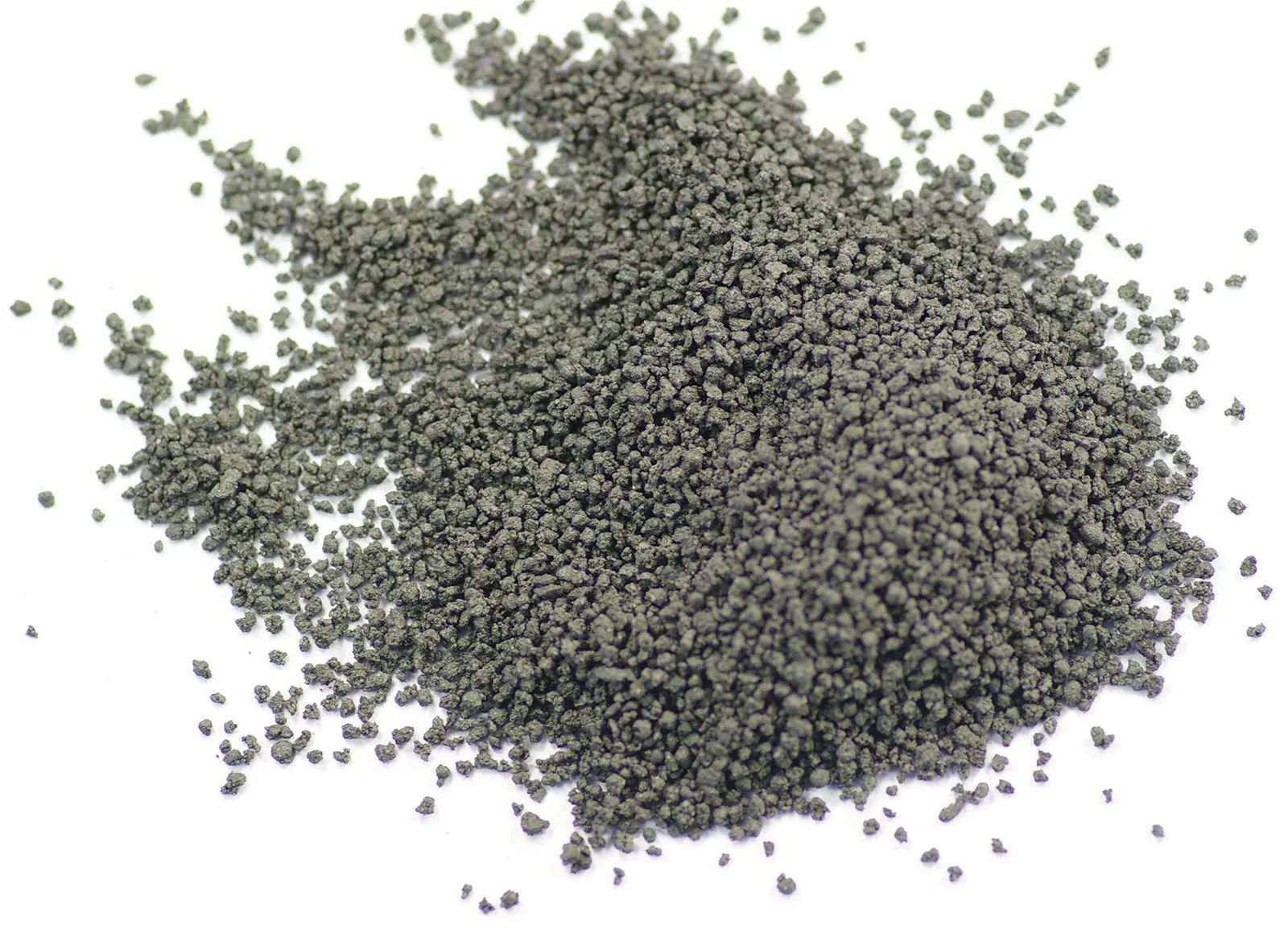
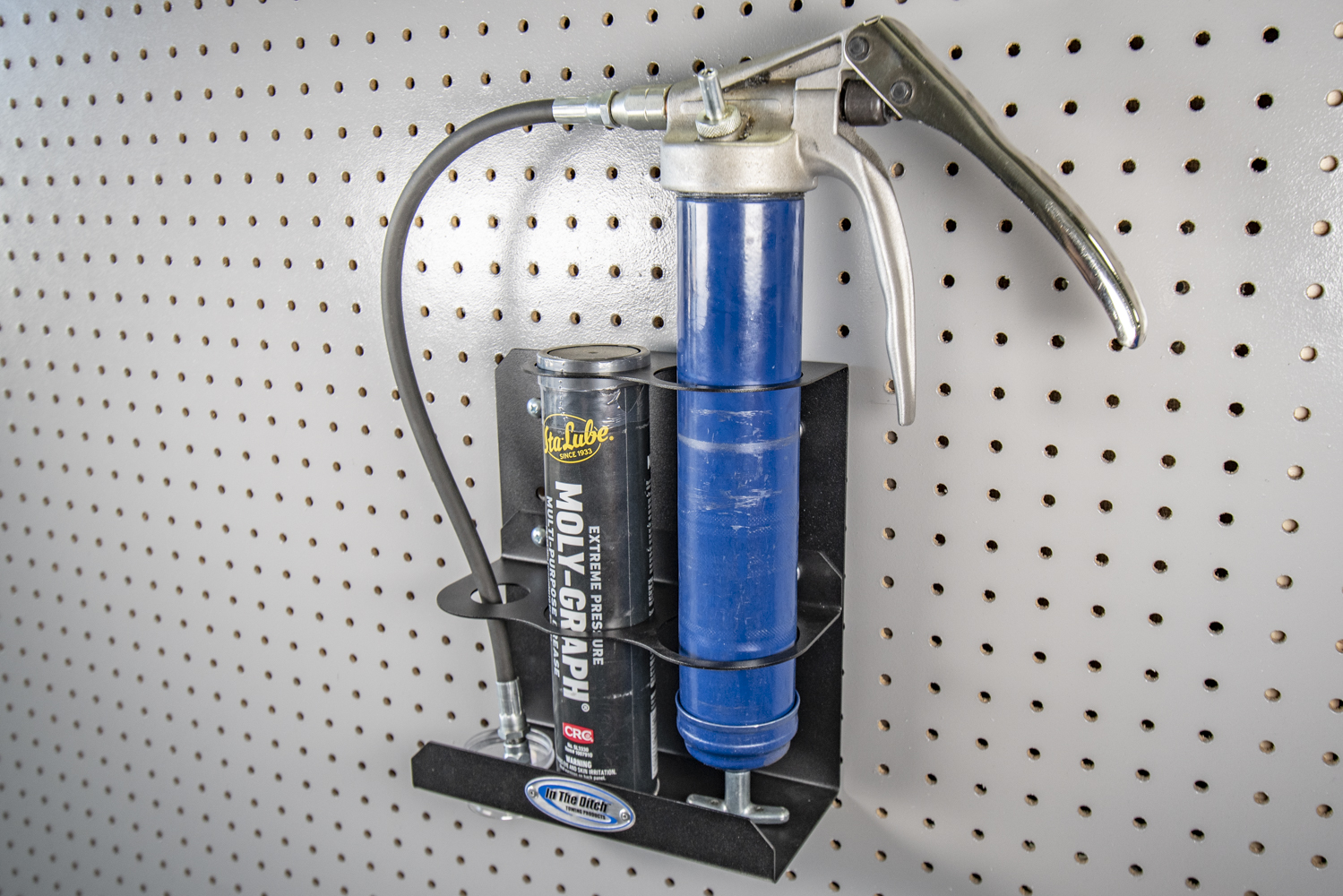
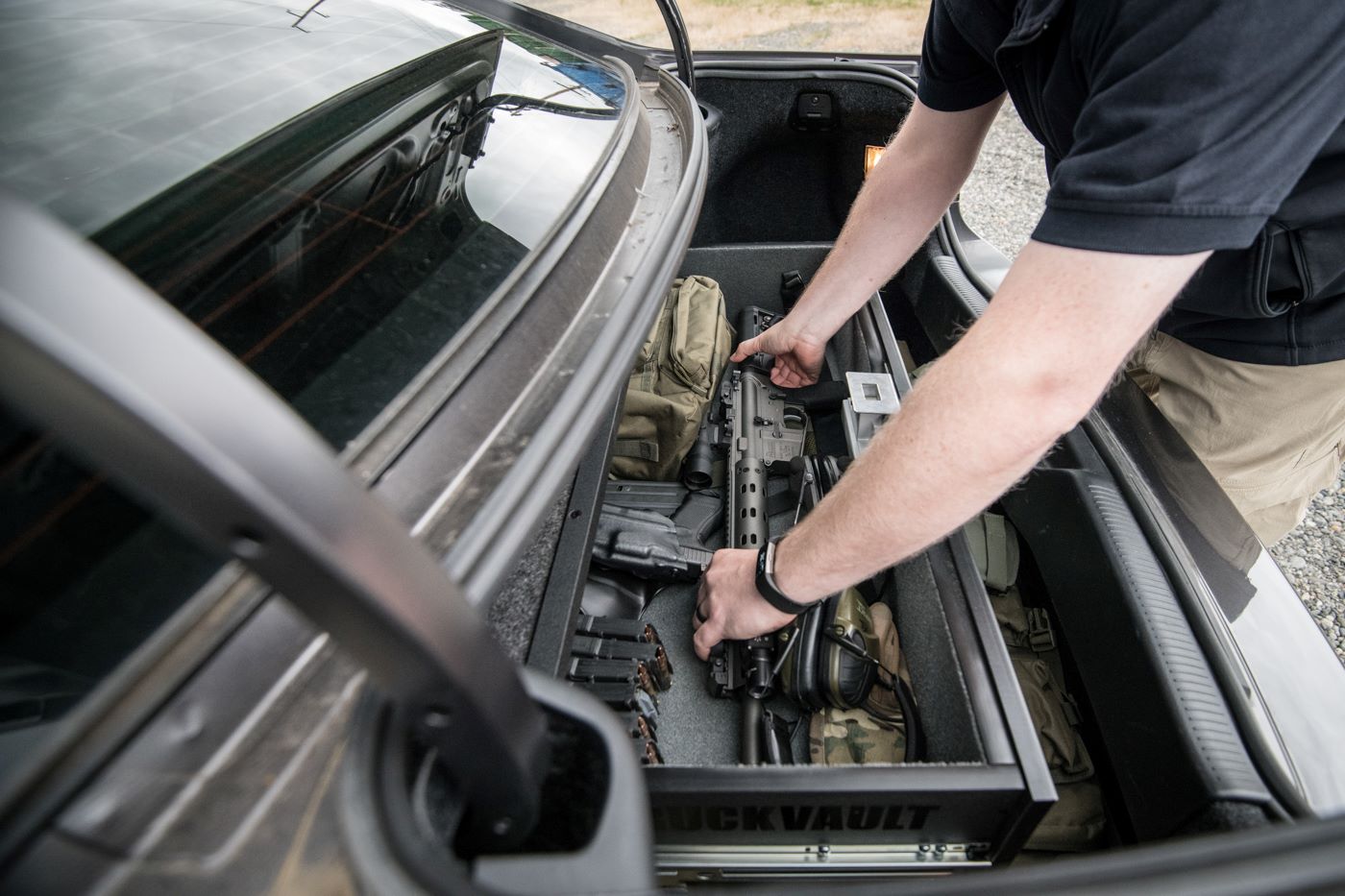
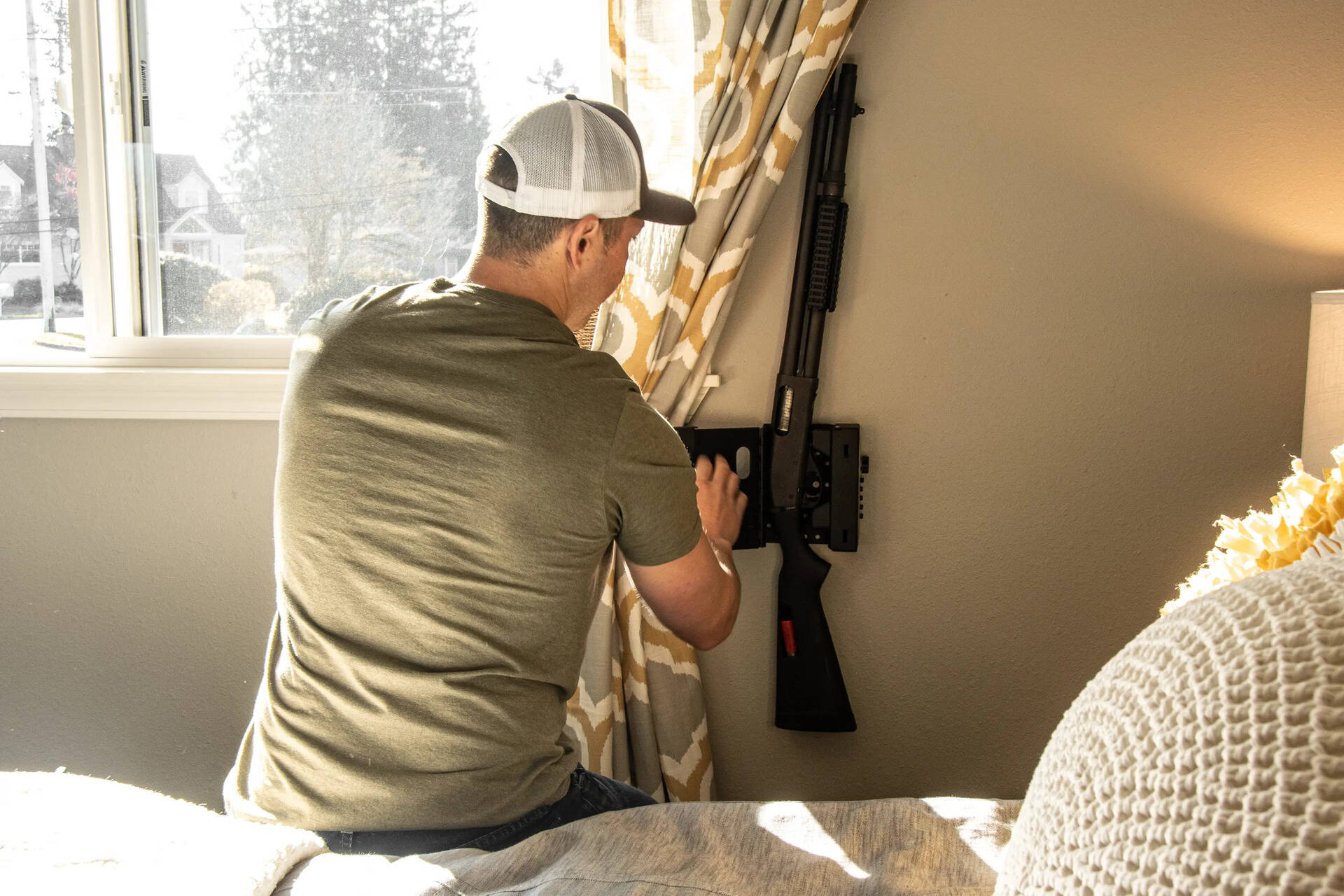
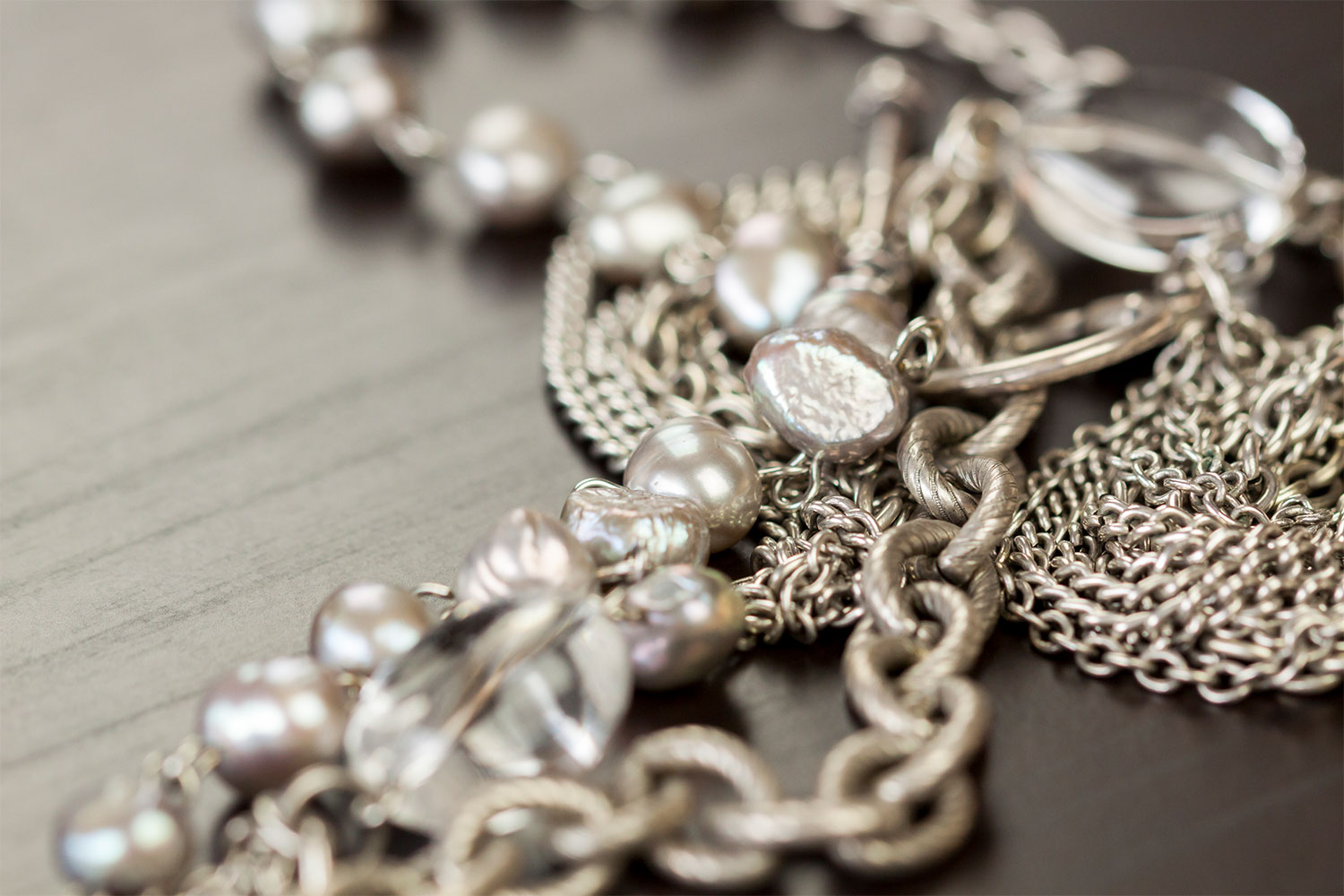

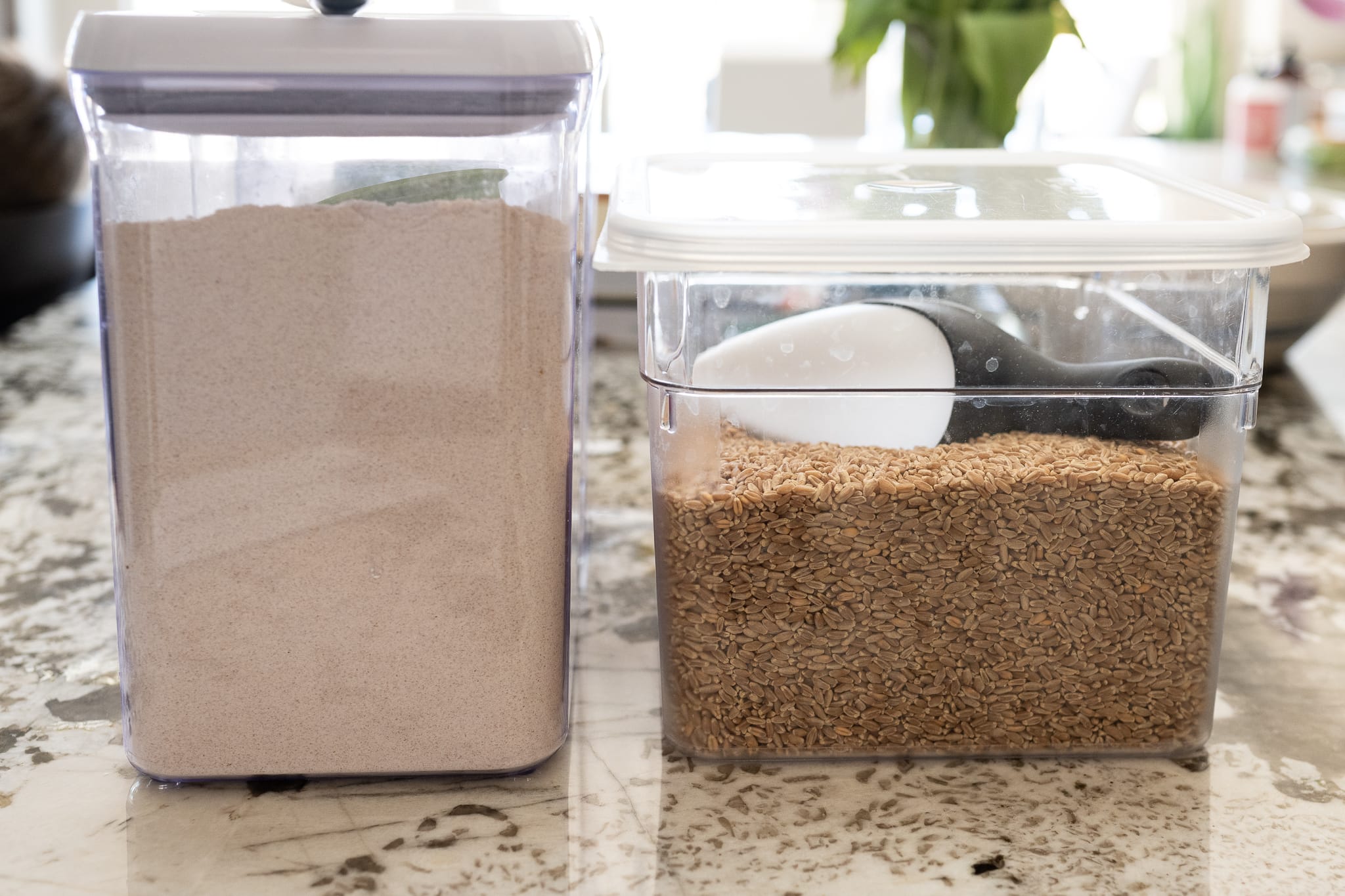




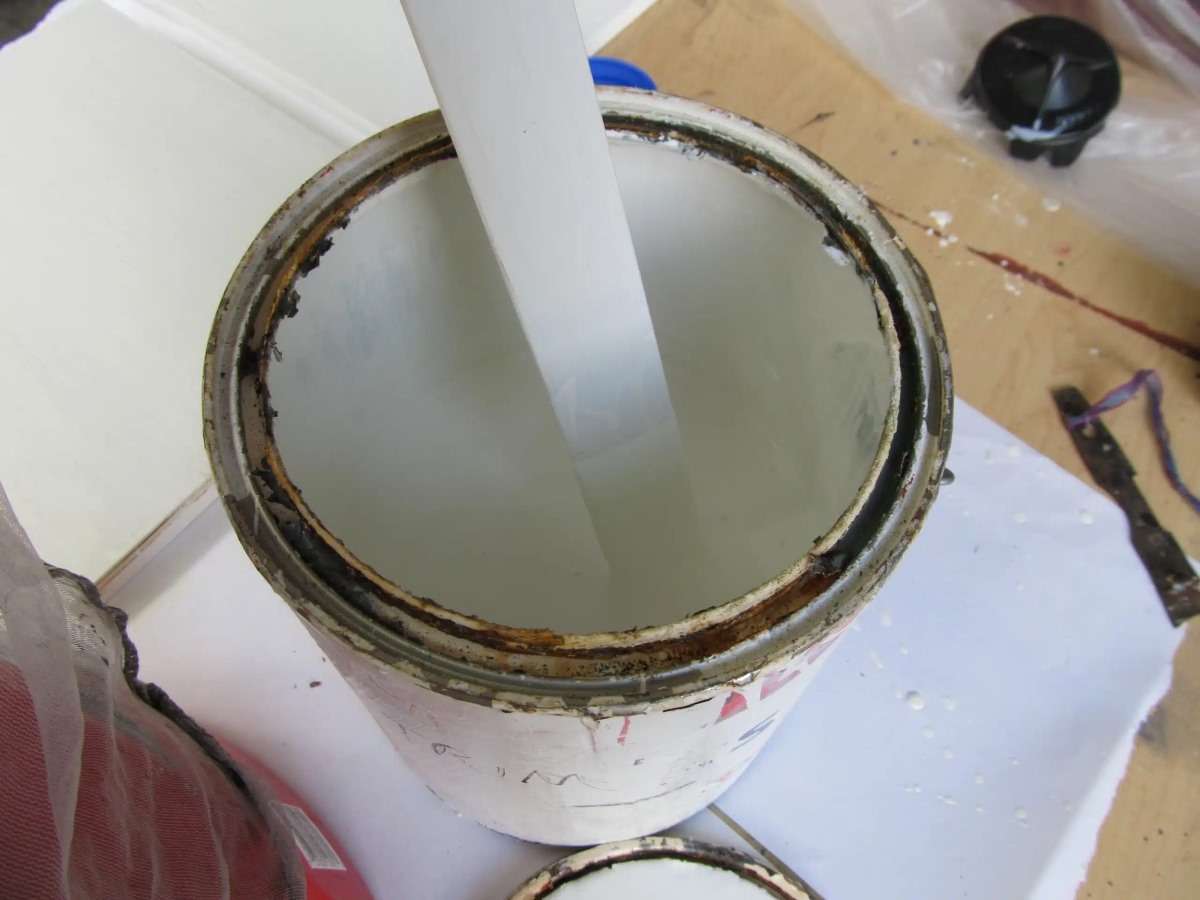


0 thoughts on “How To Store Guns To Prevent Rust”